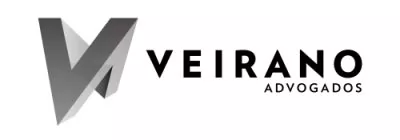A recurring theme often reappears when major sports events like the Olympic Games or the FIFA World Cup are about to be held: how can sponsors, agencies and organizers fight the so-called ambush marketing that plagues the advertising world?
While some companies invest very large sums to become an official sponsor of the event, others find creative unauthorized ways to, directly or indirectly, associate their trademarks, trade dress and distinctive signs to the competition, so as to obtain undue advantages or fake a connection to the event without paying any sponsorship fees.
If we delve into past occurrences, we will find that ambush marketing is more common than many imagine. Two major factors lead companies to practice it: (i) increased costs of sponsorship rights; and (ii) the inability to participate when the option to sponsor the event has already been given to a competing company.
One of the many noteworthy examples of ambush marketing in the Olympic Games occurred in 1984. A major credit card company acquired exclusive sponsorship rights for all Olympic Games after that year, and, in the subsequent games, started claiming that its competitor was practicing ambush marketing. This issue became more evident in the 1992 Olympic Games, when the sponsoring credit card company launched an advertising campaign mentioning the competitor and stating that the Olympic Games ticket sellers would not accept the competitor's card but only the official one. The counter-attack by the competitor came before the Winter Games, with a campaign stating "For you to have fun in the France games you do not need a visa" (with the double meaning of an authorization to enter the country or the other card's trademark).
Another example occurred during the FIFA World Cup of 2006, when a major German airline painted a soccer ball on the nose of its planes, as an attempt to become associated with the event, despite the official sponsor in that category was another airline, from the United Arab Emirates, which had paid the promoting entity a substantial amount to link its trademark and name with exclusivity to that sports competition.
In Brazil, in preparation for the 2014 World Cup, following the example of Portugal, South Africa, New Zealand and the United Kingdom, where laws and regulations were created to protect the commercial interests of event promoters and sponsors, the so-called "General Law of the Cup" (Law No. 12,663/2012) was enacted. In an innovating manner, it bears a chapter clarifying the limits for how the Official FIFA Symbols can be used and establishing fines for violation or undue association through ambush marketing by association or intrusion.
Before the start of the 2014 World Cup, a case that became famous in advertising circles involved a well-known Brazilian airline which, although not the official carrier of the Brazilian team sponsored a few soccer players, and created and published a commercial saying that it would bring "our stars to play at home". With over 2 million views only in the airline's page of YouTube, the commercial showed three Brazilian soccer players in a sequence of troubles on the way to the airport. At the end, the commercial would say "The competitors will hate to admit it, but [the airline] will bring our stars to play at home". The airline's marketing strategy was to find a way to transport the Brazilian athletes playing in European cities where it has direct flights back home to Brazil, such as Paris, London and Madrid.
For advertising professionals, that commercial was the worst strike an airline could have imposed on the Brazilian team's official carrier, which had acquired the rights to sponsor the event. For that reason, the official carrier filed a complaint with the CONAR- National Council for Advertising Self-Regulation, requesting that the advertising film be either changed or withdrawn. At a meeting held on May 8, 2014, CONAR decided that the commercial titled "Catimba" (a word that means both smartness and unfair play) should be modified, since it transmitted the false idea that the advertiser was transporting all players of the Brazilian team, although the official carrier was another airline. The advertising airline accepted the Council's decision and changed the script of its commercial.
To prevent ambush marketing before and during the World Cup, the entity conducting it had the cooperation of a large number of volunteers, governmental agents and its own employees to inspect and stop any undue use of the Official Symbols. The final result was very positive, even for most advertising personnel, who learned how to respect the boundaries of rights held by sponsors of individual athletes or teams and by the entire event. The number of cease and desist and warning letters was smaller than expected.
Now it is time for the International Olympic Committee to get ready to prepare its strategies for the Rio Olympics in 2016.
The content of this article is intended to provide a general guide to the subject matter. Specialist advice should be sought about your specific circumstances.

